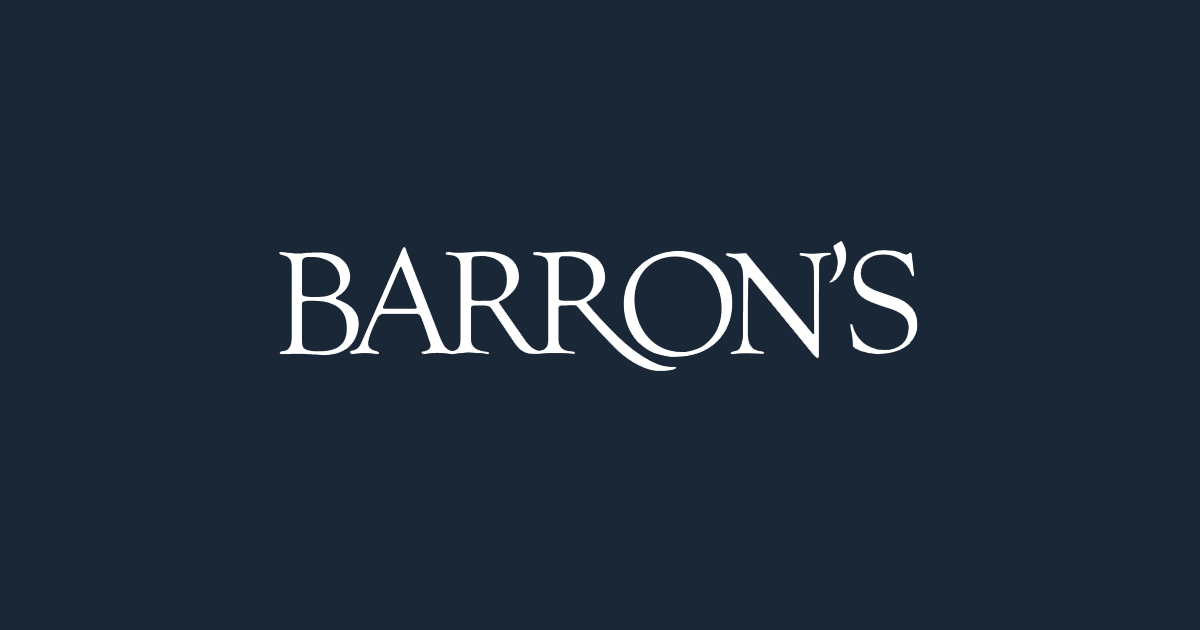The medical breakthrough announced Sunday by
Verve Therapeutics
seemed like bullish news. In the first human test of a genetic technology called “base-editing”, Verve’s one-time treatment durably reduced patients’ high cholesterol.
In Monday’s market, however, the stock (ticker: VERV) sank 41%, to $9.29. It wasn’t the reaction that chief executive Sekar Kathiresan had wanted. But it has been an unfriendly stock market for biotechs.
“Any data released in this market is going to make a stock go down,” Kathiresan told Barron’s. “There is no room for nuance or taking a look at details.”
The stock’s drop was probably the wrong interpretation of Verve’s news.
Data that Verve presented Sunday—at the American Heart Association’s annual science sessions—showed that a single infusion of Verve’s genetic treatment led to drops of 40% to 55% in the “bad” LDL cholesterol of patients with inherited high levels of the stuff that can kill them at an early age. Verve’s therapy uses the Nobel Prize-winning technology called Crispr to zero in on the DNA defect that leaves certain families with cholesterol that is four-times the healthy level. Then Verve’s treatment inactivates the defective gene, by using base editing to gently swap one letter in the gene’s sequence for another.
In 10 patients with the cholesterol disorder, the Verve-101 treatment cut LDL cholesterol levels by up to 55%. That’s on a par with Leqvio from
Novartis
(NVS), Repatha from
Amgen
(AMGN), and Praluent from
Regeneron Pharmaceuticals
(REGN)—approved drug treatments that patients must take their whole lives.
Monday’s stock drop was probably a response to the heart attacks suffered by two of the Verve-101 test subjects. One was fatal.
But Kathiresan notes that regulators restricted this first-in-humans study to older patients with very advanced heart disease. The patients were already at high risk for cardiac events. The other safety measures in the study were satisfactory.
The U.S. Food and Drug Administration reviewed the safety data and cleared Verve to expand its Phase 1 with five more patients. The trial’s results were also reviewed by
Eli Lilly
(LLY) before its October decision to buy an option to partner on the Verve treatment.
Lilly will decide whether to team up on the cholesterol treatment next year, after seeing results from the completed Phase 1 and that of another Verve treatment that will use a different vehicle to get the base-editor to the relevant liver cells.
Lilly has also optioned a third program in which Verve will target a second genetic defect, and could reduce LDL cholesterol by an additional 50% in high-cholesterol families.
Verve’s ultimate ambition is a one-and-done treatment to lower cholesterol in the 50 million adults who are at-risk for cardiovascular disease. Despite the availability of statins and new treatments like Leqvio, only a small portion of patients reduce their lifetime cholesterol to healthy levels—because of cost, poor adherence to the chronic treatments, or inconsistent access to healthcare.
“Those agents are theoretically able to lower LDL,” said Kathiresan. “But in practice the actual effect is zero, because very few patients are actually on those treatments.”
Now that Verve has shown an effect and acceptable safety for its base-editing treatment, Kathiresan said that regulators will allow its studies to enroll patients who are less sick and prone to cardiac events. A true test of the treatment’s effect on heart attacks must await the placebo-controlled trial scheduled for 2025.
William Blair analyst Myles Minter called the Sunday results from Verve “trailblazing” and wasn’t concerned about the two cardiac events. He reiterated his Buy rating. So did Seamus Fernandez at Guggenheim, who’s got a $55 price target on Verve stock.
Verve’s Phase 1 study was the first human trial of base-editing—a variant of Crispr editing that was developed in the lab of Harvard chemist David Liu, and licensed for other illnesses to
Beam Therapeutics
(BEAM).
So the Verve results also answer the question of whether base-editing can produce treatments. “It works!” said Kathiresan.
Write to Bill Alpert at [email protected]
Read the full article here













